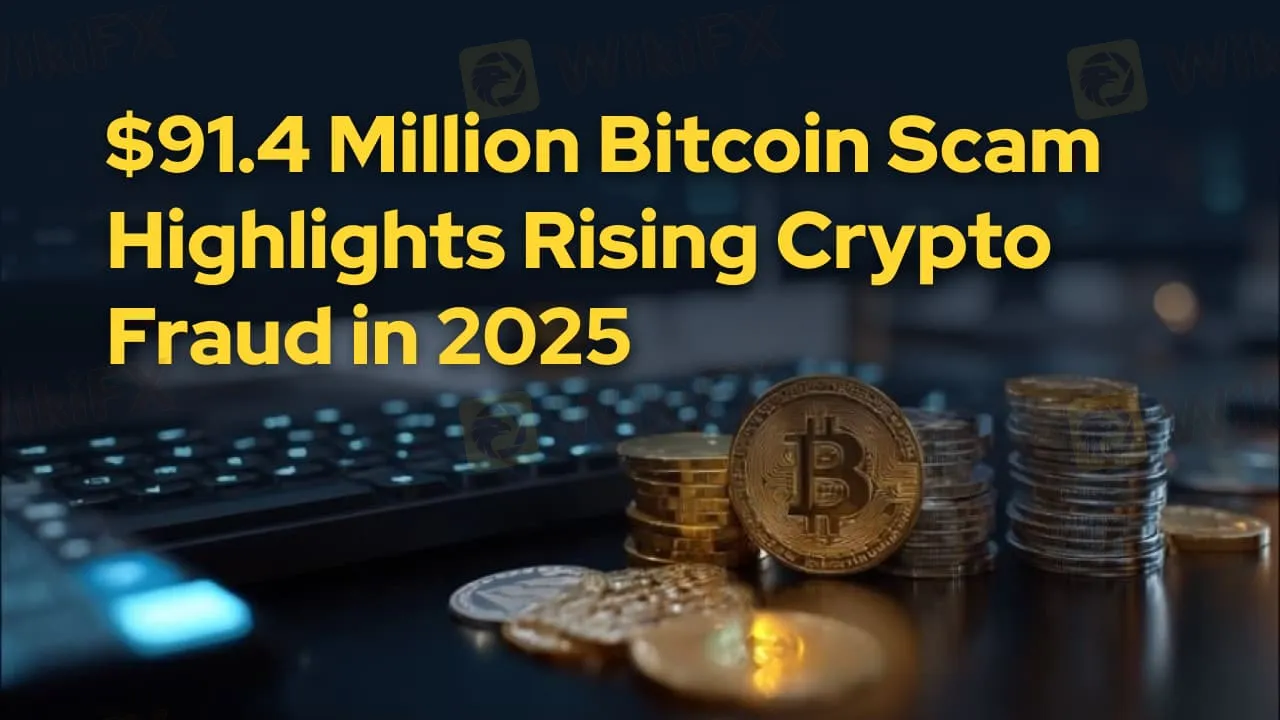Lured by a deepfake video, retiree lost over $4,000 in an investment scheme
Investment scams recorded the highest amount of losses, at about $145.4 million, in the first half of 2025.
简体中文
繁體中文
English
Pусский
日本語
ภาษาไทย
Tiếng Việt
Bahasa Indonesia
Español
हिन्दी
Filippiiniläinen
Français
Deutsch
Português
Türkçe
한국어
العربية
Abstract:A recent case involving the theft of 783 BTC (worth approximately $91.4 million) underscores the growing sophistication of cybercriminals targeting digital asset holders.

A recent case involving the theft of 783 BTC (worth approximately $91.4 million) underscores the growing sophistication of cybercriminals targeting digital asset holders.
According to the report, the victim was deceived after fraudsters impersonated a hardware wallet support agent, gaining direct access to their crypto wallet. This initial deception was reinforced by a carefully orchestrated social engineering campaign—a tactic that has become increasingly prevalent in the crypto sector.
The criminals further bolstered their credibility by posing as senior UK police officers, fabricating an elaborate story about a supposed security breach. The victim was told that an arrested individuals phone contained personal identification documents linked to them, leading them to believe their Bitcoin was at risk. Under this pressure, they were ultimately persuaded to hand over control of their assets.
This case reflects a troubling trend in crypto fraud: attackers are no longer relying solely on phishing emails or malware, but instead on psychological manipulation, trust exploitation, and impersonation of authoritative figures. The blending of technical compromise with social engineering tactics makes these scams particularly difficult to detect, even for experienced investors.
Industry experts warn that as crypto adoption continues to expand, attackers will increasingly target individuals rather than institutions, exploiting fear and urgency to pressure victims into compliance. They emphasize the importance of:
With losses already topping billions in the first half of the year, the trajectory suggests that 2025 could set a new record for crypto-related fraud. This latest $91.4 million theft is a stark reminder that while digital assets offer freedom and opportunity, they also demand heightened vigilance and security awareness.

Disclaimer:
The views in this article only represent the author's personal views, and do not constitute investment advice on this platform. This platform does not guarantee the accuracy, completeness and timeliness of the information in the article, and will not be liable for any loss caused by the use of or reliance on the information in the article.

Investment scams recorded the highest amount of losses, at about $145.4 million, in the first half of 2025.

Does Pemaxx prevent you from withdrawing funds once you make profits? Has the Mauritius-based forex broker disabled your trading account upon your withdrawal request? Do you fail to withdraw funds despite meeting the trading lot requirements? These scam-like trading activities have allegedly become a part of the broker’s operation, as many traders have complained about them online. In this Pemaxx review article, we have highlighted their comments against the forex broker. Keep reading!

Did Fortune Prime Global deduct all your profits by accusing you of market manipulation? Are you struggling to access withdrawals for months? Has the forex broker disabled your forex trading account upon the withdrawal application? Does the broker stipulate tax payments as a condition for fund withdrawals? You are not alone! In this Fortune Prime Global review article, we have highlighted these complaints. Read on!

Melaka police raided a call centre run by four Chinese nationals targeting victims with fake investment schemes via a mobile app.
